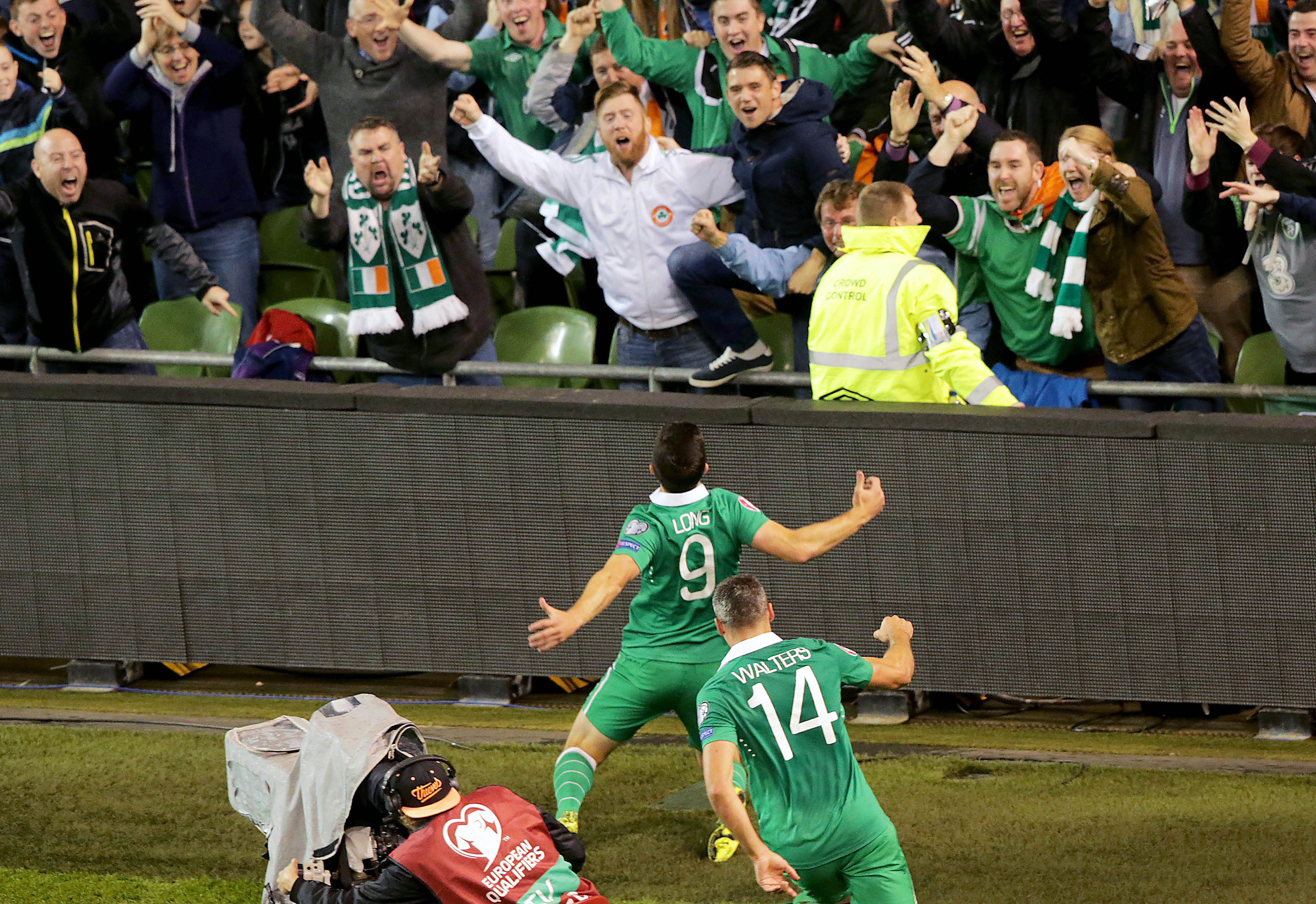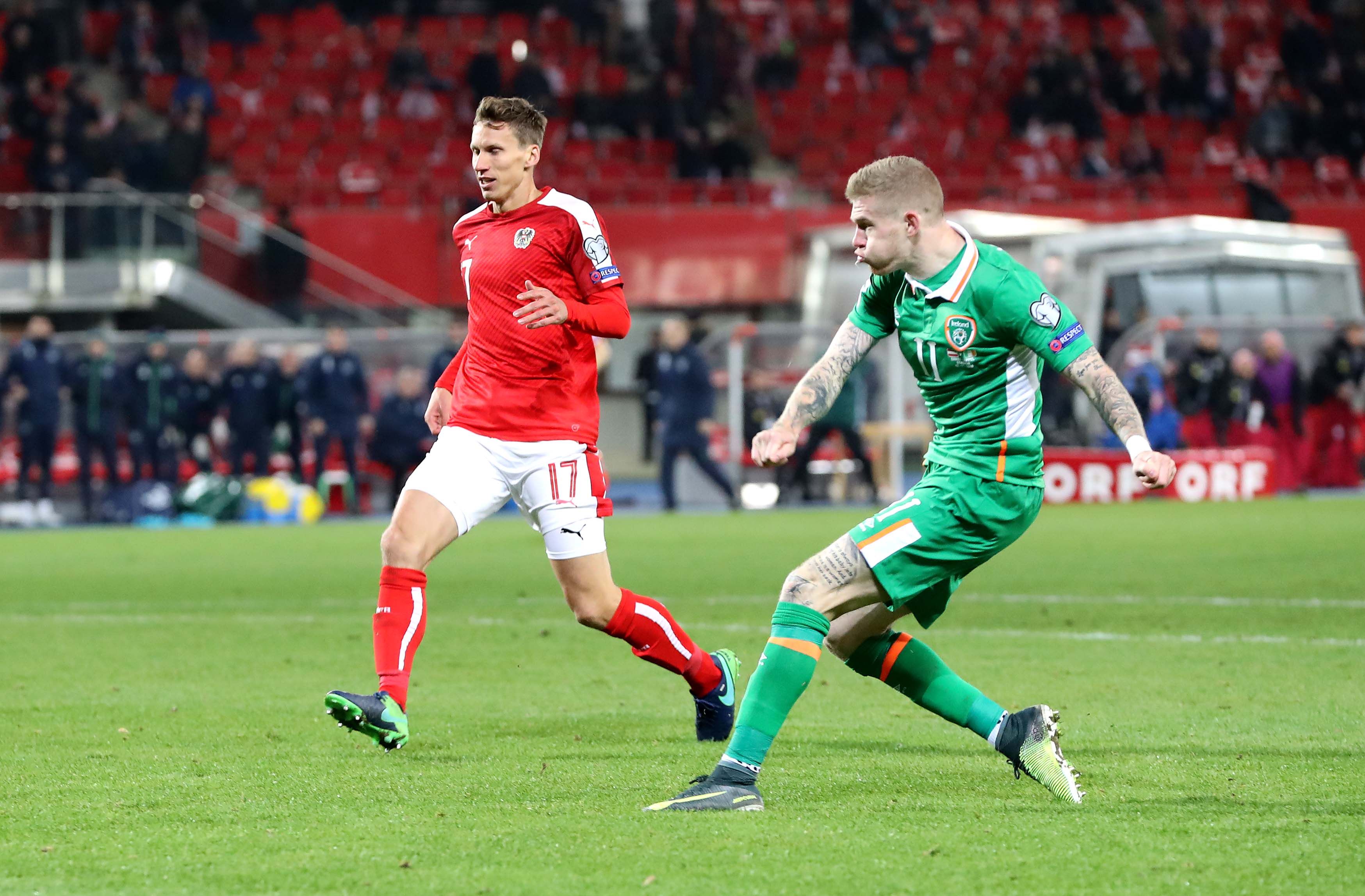

Share
14th November 2016
05:54pm GMT

Gordon Strachan’s team were seen as the progressive side from these islands. After they had beaten Ireland at Celtic Park thanks to a goal which came from an inventive corner routine, one reporter noted that the Scotland manager was 'turning promise into tangible reward'.
After the draw in Dublin, they were two points ahead of Ireland with four games left to play. Steve Staunton, one Irish journalist declared, “did far better than Martin O’Neill is doing at the moment”.

With this damning judgment, O’Neill time as Ireland manager seemed destined to wind down in the autumn. There were many outside the Ireland squad who wouldn't have disagreed with the general point by the writer, even if bringing Steve Staunton into any argument should probably only be done as a last resort.
Of course, all that would change over the following months. Scotland took four points from their final four games, which included a win against Gibraltar, Ireland beat Germany and charged past Bosnia in the play-off to qualify.
The Germany victory was the stand-out performance when O’Neill seemed to land upon a team which could play with aggression and purpose. The month before, Glenn Whelan had been booked in the narrow home win against Georgia and he was ruled out.

In his absence, James McCarthy started in a deeper position in midfield, but O’Neill also selected Daryl Murphy upfront. Shane Long came from the bench to score the winning goal which transformed Ireland’s position in the group.
Three days later, Long started again in Warsaw, but was stretchered off with an ankle injury which kept him out until the second leg of the Bosnia tie.
By the summer of 2016, Long was Ireland’s main striker as O’Neill appeared to have grasped that he was Ireland’s best option in that position.
Long didn’t have a great summer and, when he scored against Moldova last month, it was his first goal for club or country since the pre-Euro 2016 friendly against Netherlands.
On Saturday, Ireland achieved their most notable away win in a generation. Long was among those celebrating and congratulating the squad, having been ruled out through injury.
https://twitter.com/ShaneLong7/status/797512613299097600There is a long wait for Ireland’s next international. O’Neill knows that he won’t have Robbie Brady for the game against Wales in Dublin, but there may be no point in considering his team beyond that, even if certain things may now be applicable.
James McClean is becoming one of Ireland’s most important players and if O’Neill decides to play a midfield of, say, James McCarthy, Harry Arter, Jeff Hendrick and Wes Hoolahan, then there will only be one forward position available.
Long’s pace as demonstrated in the goal against Germany is a thrilling element of his game. It is also such a rare quality in an Irish striker that it can seem like a dereliction of duty to ignore it.
International football is, to a great extent, about ignoring the flaws in a player. Most teams have enough weaknesses that it should be about encouraging the talents in a player like Hoolahan or McClean and ignoring their deficiencies.
The same is true of Long, but if everyone is fit next March, O’Neill may conclude that Jon Walters, not Long is the best option as a striker.
Walters, as his club-mate Marko Arnautovic warned before the game in Vienna, is “not a human being, he is a machine”.
He has selflessly worked the right flank for Ireland, but at the age of 33, it might be time to ask him to focus his energy.

Walters showed in Vienna that he can play as a target man more effectively than any other player in the Ireland squad. He holds up the ball in a way that Long can’t, showing a cunning developed during his long career in English football which gave him a nous that managers at club and international level have found invaluable and impossible to dispense with.
“Sometimes it was difficult being on my own up front,” Walters said after Saturday’s game, but he has always embraced that difficult task.
Ireland missed Walters’ intelligence and energy during the summer, but their move to the top of the group has been driven in part by his move upfront.
Ireland were drawing with Moldova when Long came off and Walters moved into a more central position. On Saturday, he led through industry and intelligence, demonstrating that he is invaluable to Ireland.
But there are a few players that could be said of now. McClean and Hoolahan are needed too, while Seamus Coleman remains a world-class presence.
Others such as David Meyler have shown that there are a number of players who can deliver when O’Neill demands it from his squad. Glenn Whelan may find it hard to get back into an Ireland midfield, even if experience suggests Whelan will always be there, the only certain thing in an increasingly uncertain world.
But nobody can be sure anymore. O’Neill may have to wait and see who is available in March.
Wes Hoolahan, for example, might not have started if everyone had been fit, but he showed why he is worth the risk, no matter where a game takes place or who the opposition is.
https://twitter.com/SportsJOEdotie/status/797951933474480128But if everyone is fit when Wales arrive, then Long may find himself asked to do what he did against Germany and come from the bench to exploit the space in a tiring defence.
Victory against Austria hasn't made Ireland a team of world-class talents.
There is a long way to go in the group, but the once-in-a-generation triumph has shown that Ireland have a squad of uncommon spirit, but one where nobody can become complacent.
Explore more on these topics: